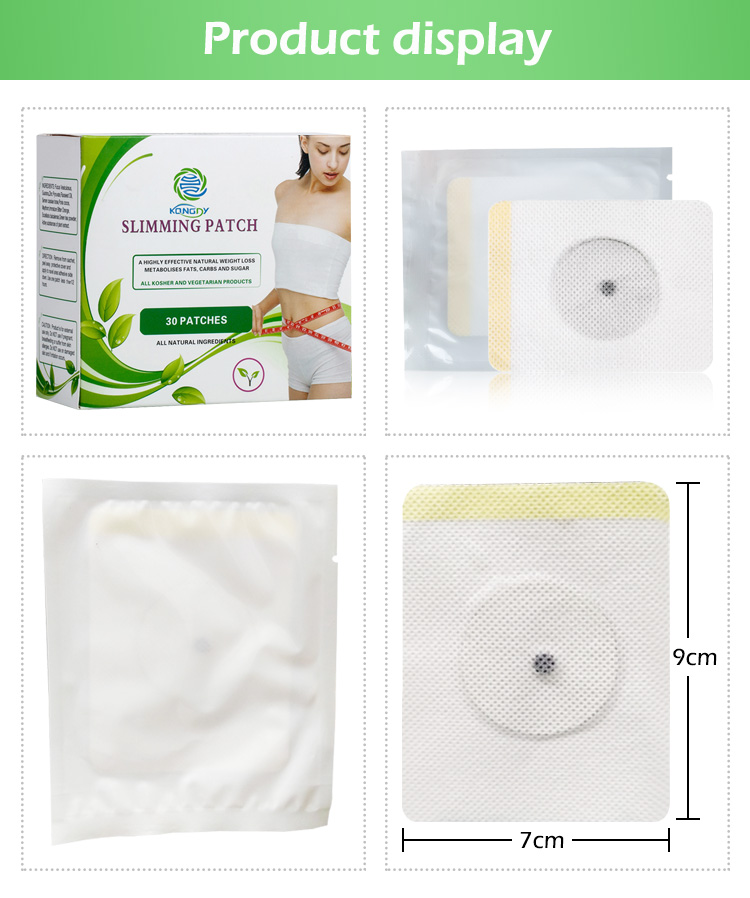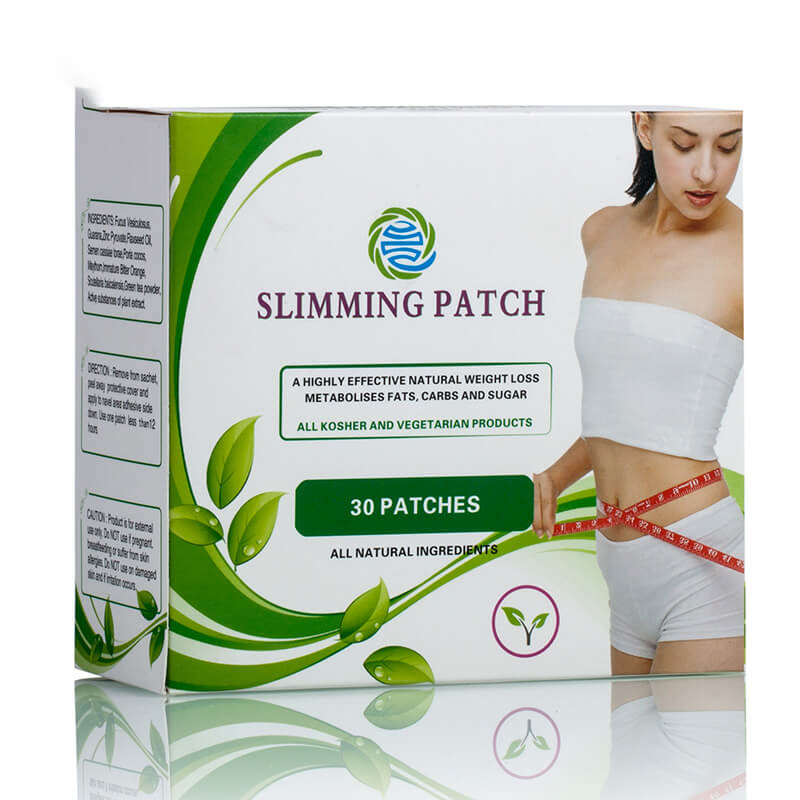What Risks Arise from Poor Quality Control in Herbal Slimming Patches OEM?
The global weight management industry has seen significant growth, with herbal slimming patches gaining popularity as a convenient, natural, and non-invasive solution. Businesses entering this market through herbal slimming patches OEM manufacturing or partnerships with a herbal slimming patches Manufacturer can capitalize on rising demand. However, success depends heavily on one crucial factor: quality control (QC).
Poor quality control not only compromises the safety and effectiveness of products but also threatens the survival of brands in an increasingly competitive environment. This article explores the risks associated with inadequate QC in the production of Custom herbal slimming patches and Private Label herbal slimming patches, and why working with a trusted herbal slimming patches Supplier is essential for long-term success.

1. Why Quality Control Matters in Herbal Slimming Patches OEM
Quality control ensures that products consistently meet safety, performance, and regulatory standards. For herbal slimming patches OEM services, QC covers multiple aspects: ingredient sourcing, formulation accuracy, production processes, packaging, labeling, and storage.
When QC is ignored or inadequately implemented, the risks multiply, affecting not only end-users but also the businesses behind the products. Unlike other consumer goods, health and wellness products face stricter scrutiny, meaning poor QC can cause irreparable damage to a brand.
2. Risks Arising from Poor Quality Control
a) Safety Hazards for Consumers
One of the most immediate risks of poor QC is consumer harm. Herbal extracts can contain impurities such as heavy metals, bacteria, or pesticides if not properly tested. Without strict QC, Private Label herbal slimming patches or Custom herbal slimming patches could cause skin irritation, allergic reactions, or even systemic health problems.
b) Ineffective Products
If formulations are not tested for potency and consistency, the patches may fail to deliver expected results. Consumers who see no benefit from herbal slimming patches are unlikely to make repeat purchases, leading to declining sales and negative reviews.
c) Regulatory Non-Compliance
Regulatory bodies such as the FDA, EMA, or local authorities require that slimming products meet strict standards. Poor QC could result in non-compliance, causing product recalls, bans, and even legal penalties. This is especially damaging for businesses looking to expand internationally.
d) Brand Reputation Damage
Word-of-mouth and online reviews play a huge role in consumer decision-making. A single case of a defective slimming patch can go viral, permanently tarnishing a brand’s image. For herbal slimming patches Manufacturers or Suppliers, poor QC damages not only their clients’ reputation but also their own credibility.
e) Financial Losses
From recalls and legal disputes to wasted production costs and lost customers, poor QC can cause significant financial strain. Instead of saving costs by cutting corners, businesses often end up paying more in damage control.
f) Supply Chain Disruptions
Inconsistent production caused by poor QC affects the ability of a herbal slimming patches Supplier to deliver products on time. This disrupts the supply chain, leading to lost sales opportunities and strained relationships with distributors and retailers.
g) Increased Liability Risks
If defective Custom herbal slimming patches cause harm, businesses may face lawsuits. Legal liabilities not only drain financial resources but also reduce investor confidence and business partnerships.
3. Case Scenarios of Poor QC in Herbal Slimming Patches OEM
To illustrate the dangers, consider these scenarios:
Scenario 1: Contaminated Ingredients
A Manufacturer sources herbs without proper testing. The patches produced contain harmful levels of heavy metals, leading to a recall and consumer lawsuits.Scenario 2: Weak Adhesive Issues
Without QC checks, a batch of Private Label herbal slimming patches is released with adhesives that don’t stick properly. Customers complain about poor performance, causing a spike in returns and damaging the retailer’s trust.Scenario 3: Incorrect Labeling
Due to lack of packaging QC, patches are labeled with the wrong dosage instructions. This not only confuses customers but also exposes the brand to regulatory action.
These scenarios highlight that poor QC is not just a technical issue—it’s a direct business risk.
4. Why Custom Herbal Slimming Patches Are Especially Vulnerable
While both Private Label and Custom products require QC, Custom herbal slimming patches are particularly at risk due to:
New formulations: Each unique formula requires extra testing to ensure safety and effectiveness.
Unproven ingredient combinations: Without rigorous QC, interactions between herbal extracts may lead to unexpected side effects.
Market differentiation pressure: Brands offering Custom solutions often claim premium quality, making QC failures even more damaging to reputation.
5. The Role of Herbal Slimming Patches Manufacturers and OEM Partners
A reliable herbal slimming patches Manufacturer or OEM provider should have strict QC protocols in place, covering:
Raw Material Testing – Ensuring herbs are free of contaminants and meet potency requirements.
Formulation Validation – Testing blends for stability and safety before scaling production.
Batch Consistency Checks – Verifying uniformity across every patch produced.
Packaging Integrity Testing – Ensuring packaging protects patches from moisture and contamination.
Regulatory Documentation – Providing compliance reports for FDA, GMP, ISO, or CE standards.
Choosing the right herbal slimming patches Supplier ensures your products are not only safe but also market-ready across different regions.
6. Long-Term Business Risks of Ignoring Quality Control
For businesses relying on herbal slimming patches OEM services, ignoring QC can create long-term problems:
Loss of market share to competitors with better quality assurance.
Difficulty expanding into new markets due to compliance issues.
Strained partnerships with retailers, distributors, and investors.
Increased operational costs from handling product complaints.
In short, poor QC doesn’t just affect one product—it threatens the entire business model.
7. Final Thoughts
Poor quality control in herbal slimming patches OEM manufacturing leads to consumer safety risks, regulatory issues, reputational damage, and financial losses. The stakes are particularly high for Custom herbal slimming patches, where unique formulations require more rigorous validation.
The best safeguard is partnering with a reputable herbal slimming patches Manufacturer or herbal slimming patches Supplier that prioritizes strict QC processes at every stage. By doing so, businesses not only protect themselves from risks but also gain a competitive edge through safer, more reliable, and more effective products.
Quality is not an expense—it is an investment in long-term trust, reputation, and profitability.
Related Questions and Answers
Q1: What is the biggest risk of poor QC in herbal slimming patches?
A1: The biggest risk is consumer safety hazards, which can lead to recalls, lawsuits, and irreparable brand damage.
Q2: Why do Custom herbal slimming patches need stricter QC than Private Label patches?
A2: Custom patches involve new formulations and ingredient combinations, requiring additional validation to ensure safety and consistency.
Q3: How does a herbal slimming patches OEM partner ensure compliance?
A3: By implementing GMP-certified processes, raw material testing, stability studies, and strict packaging checks.
Q4: What financial impacts can poor QC cause?
A4: Poor QC leads to recalls, customer refunds, lawsuits, and loss of market share—all of which damage profitability.
Q5: How can businesses avoid QC-related risks?
A5: By choosing a reliable herbal slimming patches Manufacturer or Supplier with transparent, strict, and internationally recognized quality control processes.






